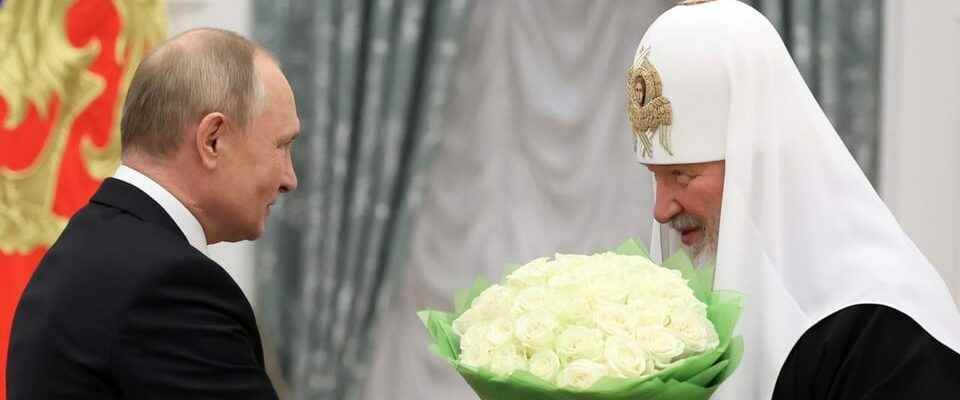contents
A Russian Orthodox delegation travels to the church summit. Its leader Kirill supports Russia’s aggressive war in Ukraine – a breach of World Council of Churches principles.
Every eight years, Protestant and Orthodox Christians from all over the world gather. They represent 352 different churches. This year the General Assembly of the World Council of Churches, WCC for short, will take place for the first time in Germany, in Karlsruhe.
Also present are representatives of the Russian Orthodox Church. Its leader, Moscow Patriarch Kirill, supports Russia’s war of aggression in Ukraine. The participation of the Russian Orthodox Church caused discussions even before the meeting.
Legend:
Patriarch Cyril has repeatedly justified the war against Ukraine as a sacred task, as a “metaphysical struggle” of good against evil. At the same time he demonizes the West.
Keystone/EPA/Mikhail Metzel
Peace is actually a fundamental concern of ecumenism. Nevertheless, the Moscow Patriarch justifies the war in Ukraine – and even donated his blessing for it. In fact, this is incompatible with the basic principles of the ecumenical movement, explains SRF religion editor Judith Wipfler, who reports on the huge gathering in the south-west German state of Baden-Württemberg.
The WCC sees itself as a peace movement
A fundamental ecumenical principle is “Do No Harm”. After the collapse of civilization in the Second World War, the World Council of Churches was founded for the reconciliation of churches and peoples. At the pre-Assembly conferences, the churches fiercely debated whether to expel the Russian Orthodox Church.
“But we decided against it. Because the hope that one can enter into a dialogue prevails,” explains the religion expert. The other reason why the Russian-Orthodox delegation was in favor of attending the church summit: “Just as Putin is not Russia, Kyril is not the Russian Church.”
The churches repeatedly tried to work for peace and dialogue. So far, however, efforts have been fruitless. Wipfler believes that a contribution to reconciliation is possible in the medium term. “But I am skeptical that there will be a major turning point in Karlsruhe. Even the Pope didn’t get any further with Moscow.”
In addition, according to Wipfler, the ecumenical council has lost its importance and influence in the new millennium – also because of concessions to the orthodox, more conservative churches. The Russian Orthodox Church is the largest member church in the WCC. “And that prevents pointed, political statements or appeals. Because these must be taken unanimously.”
Meeting in the Shadow of War
The weight of the conservative forces also means that certain issues are not even brought up on the table. For example, the questions of equality or homosexuality. The latter is almost a taboo subject. Nonetheless, the world communion of churches can reach hundreds of millions of people. Christianity is also growing in the Global South and in Asia, quite unlike in Europe.
The war in Ukraine threatens to push other issues into the background. “But the church community would also like to address issues such as climate justice, postcolonialism or the rights of indigenous peoples,” says Wipfler. And with its classic themes of peace, justice and the integrity of creation, the WCC can provide important impetus here.
